News in Brief
-
 Genetics
GeneticsMissing genes not always a problem for people
Humans have ways to make up for missing genes, study suggests.
-
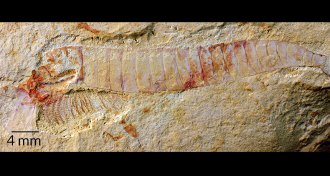 Paleontology
PaleontologyFossil reveals an ancient arthropod’s nervous system
A roughly 520-million-year-old fossil preserved an ancient arthropod’s ventral nerve cord and peripheral nerves.
-
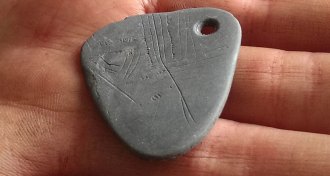 Archaeology
Archaeology11,000-year-old pendant with etched design found in England
Stone artifact with design etched on it comes from a transitional time in England 11,000 years ago.
By Bruce Bower -
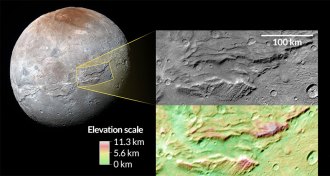 Planetary Science
Planetary ScienceCharon’s surface cracked when ancient subsurface sea froze
A subsurface ocean on Charon, Pluto’s largest moon, might have once frozen and cracked the moon’s surface, creating some of the ridges and valleys seen today.
-
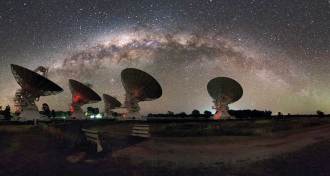 Astronomy
AstronomyFast radio burst tracked to its galaxy of origin
After years of searching, astronomers finally track an elusive cosmic radio signal to its home: a galaxy about 6 billion light-years away.
-
 Oceans
OceansCorals need to take their vitamin C
Newly settled corals use vitamin C to help build their stony skeletons, researchers propose.
-
 Oceans
OceansGulf oil spill could hasten corrosion of shipwrecks
Oil from the Deepwater Horizon disaster could hasten the corrosion of historical shipwrecks in the Gulf of Mexico, new studies of marine microbes suggest.
-
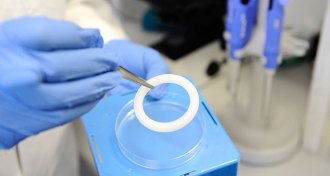 Health & Medicine
Health & MedicineVaginal ring somewhat effective at preventing HIV infection
Studies of vaginal ring for HIV protection show promise, challenges.
By Laura Beil -
 Climate
Climate20th century sea level rose at fastest rate since founding of Rome
Sea levels rose more rapidly in the 1900s than during any other century in at least 2,800 years, with global warming causing at least half that rise.
-
 Materials Science
Materials ScienceNew carbon cluster has high storage capacity
A new carbon structure could store gases or liquids in honeycomb-shaped cells.
-
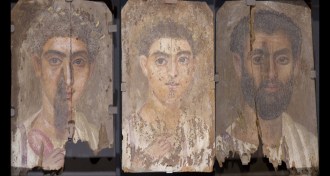 Tech
TechNew clues illuminate mysteries of ancient Egyptian portraits
New analyses shed light on how ancient Egyptian “mummy paintings” were made.
By Bruce Bower -
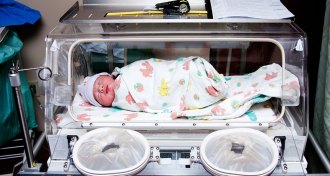 Neuroscience
NeuroscienceRe-creating womb sounds perks preemies’ attention
Babies born prematurely may benefit from hearing a recording of their mothers’ voices and heartbeats.